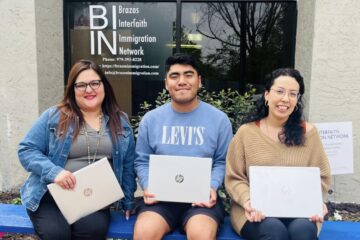Partner Spotlight: St. Andrew's

Many of BIIN’s founders were leaders from various local congregations who saw providing support for immigrants as a natural extension of their faith. As a result, many of our community partners over the years have been faith-based organizations. At the same time, BIIN has benefited from working closely with educational institutions, healthcare providers, public services, local businesses, media outlets, and entities that serve people in other ways.
To recognize what these allied organizations have done and to invite discussion of how we might move forward together, we are launching a series of “partner spotlights.” Each feature will focus on one of BIIN’s partners and explore the ways in which its members have engaged with BIIN both over time and more recently.
Our first installment looks at St. Andrew’s Episcopal Church in Bryan. Special thanks to Linda Ford, a long-time volunteer and supporter of BIIN, for her help in creating this profile.
St. Andrew’s Episcopal Church sits at the corner of West 26th Street and Parker Avenue in Bryan. Even if you have never been inside, you would likely recognize its imposing presence in downtown Bryan.
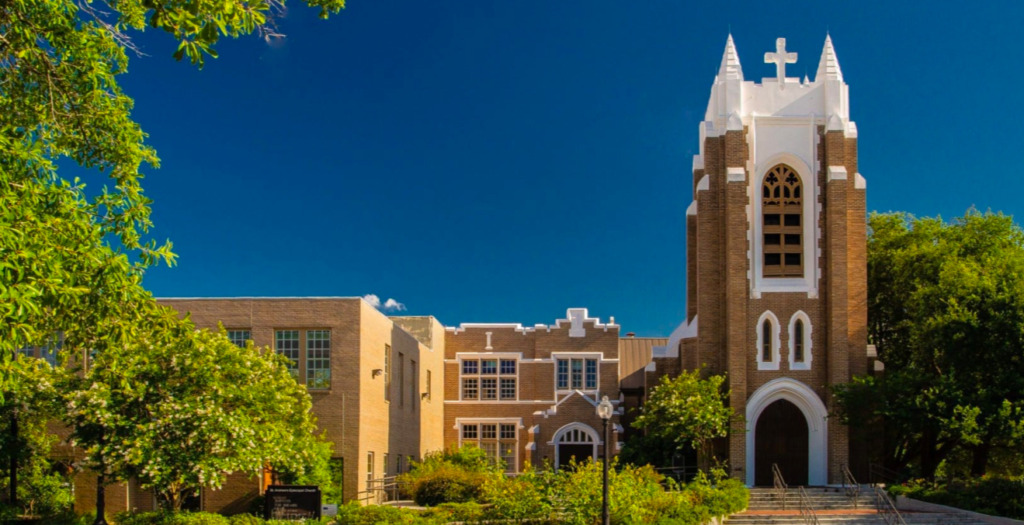
As explained by church leaders, one goal of the Episcopal Church of the USA, and therefore of St. Andrew’s, is to create “the beloved community,” or a society in which all people are embraced and treated fairly. In the Episcopal Church, individual parishes have the latitude to further define their mission in ways that help them focus on specific ministries or serve the community in which they exist. For St. Andrew’s Episcopal, creating “the beloved community” in Bryan means working “to welcome the stranger” and “to support the welfare of our city.” Many of St. Andrew’s people, both clergy and lay, have endeavored to do so both in concert with BIIN and through connections forged with other local organizations.
St. Andrew’s Rector Daryl Hay recalled that several years ago Spanish teacher and parish member Ann Sifers, with the support of her husband, Sam, offered ESL and citizenship classes in the newly refurbished basement of St. Andrew’s, at a time when BIIN did not have adequate office or classroom space of its own. The church also has a history of steady giving to BIIN, both as a parish and through individual donations by many of its members. In recent years, many people associated with St. Andrew’s Episcopal have volunteered with BIIN’s on-going programs, helped with occasional workshops and special events, and served as program leaders or board members.
For example, St. Andrew’s member Mark Lacey has worked with BIIN’s Information / Referral / Assistance (IRA) program for three years and counting. He and other trained bilingual volunteers manage a wide variety of cases, as community members seek guidance with translating documents, getting a driver’s license, filing income taxes, or finding a local lawyer. In one instance, Mark helped a pair of very worried parents whose son was in trouble and about to be deported, by contacting the Mexican government and ensuring they had a way to remain in contact with him. He was also involved in resolving a contentious matter through small claims court. Along with other IRA volunteers, Mark finds it gratifying to use his skills to help solve problems and to connect people with resources or services in the community.
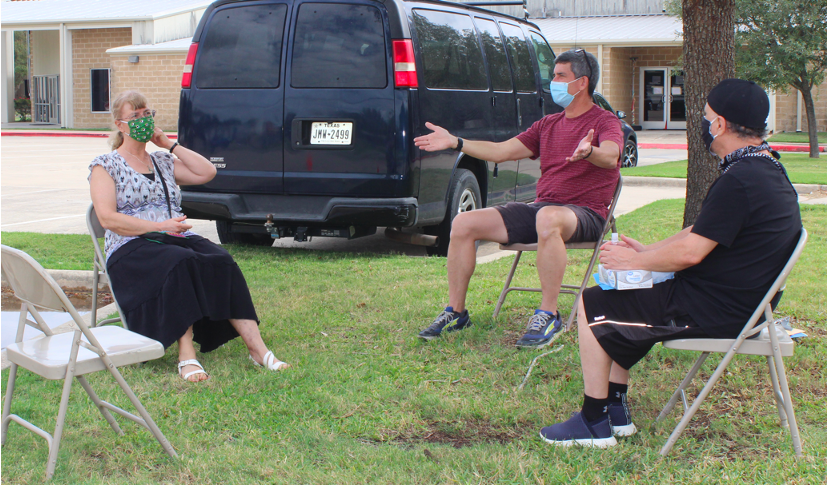
The call to welcome and build stronger connections with immigrant neighbors has also drawn people from St. Andrew’s to other BIIN programs, such as English and citizenship classes.
To understand this history, it helps to know that St. Andrew’s has for a long time invested in a multi-faceted relationship with Neal Elementary School, which is located just a few blocks from the church. For many years, the church has sponsored a unique scholarship program, in which students, identified as 4th graders “of promise” at Neal School, receive — upon graduating from high school — funds that can be used towards post-secondary education or vocational training. In recent years, volunteers from St. Andrew’s have also worked with Neal administrators and staff to offer a series of bilingual family engagement workshops, as well as a program to connect children at risk with adult mentors during the school day.
Another outgrowth of St. Andrew’s connection with Neal School — and with BIIN — is the “English for Parents” program. Under the leadership of Mary Lenn Dixon (who served on the BIIN board and as a deacon for several local Episcopal churches before moving to Austin in 2018), immigrant parents of school-aged children were invited to classes held on Wednesday mornings at Neal School. The program offered basic instruction in English, while also exploring ways for parents to support their children’s formal education both at home and in interactions with school personnel. Starting in 2018, BIIN supported the program by providing English textbooks, interns and helping to recruit volunteers. And it was through “English for Parents” that some members of St. Andrew’s Episcopal became volunteers and donors to BIIN.
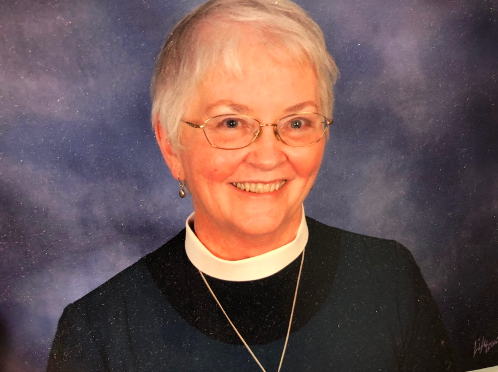
Mary Lenn Dixon created and led the "English for Parents" program at Neal School in its initial years, believing deeply that all parents want what is best for their children, and that holding classes during the day on school premises was a way to serve another vital segment of the local immigrant population.
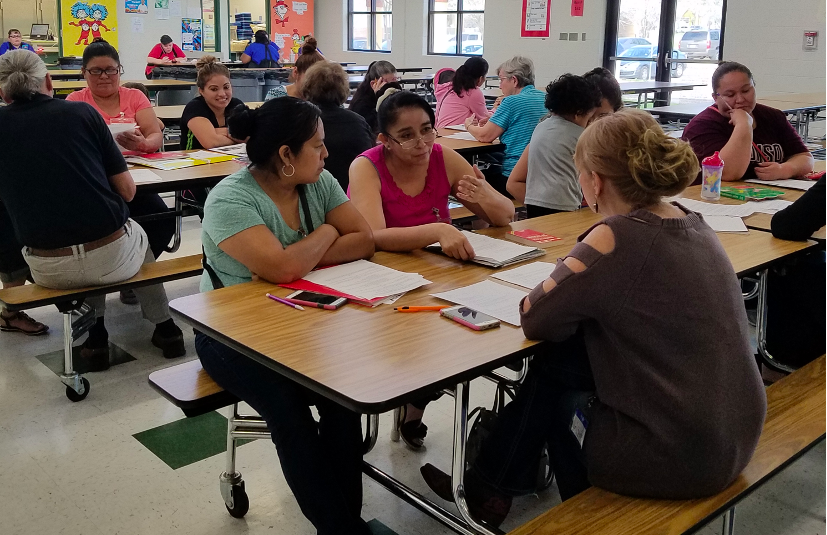
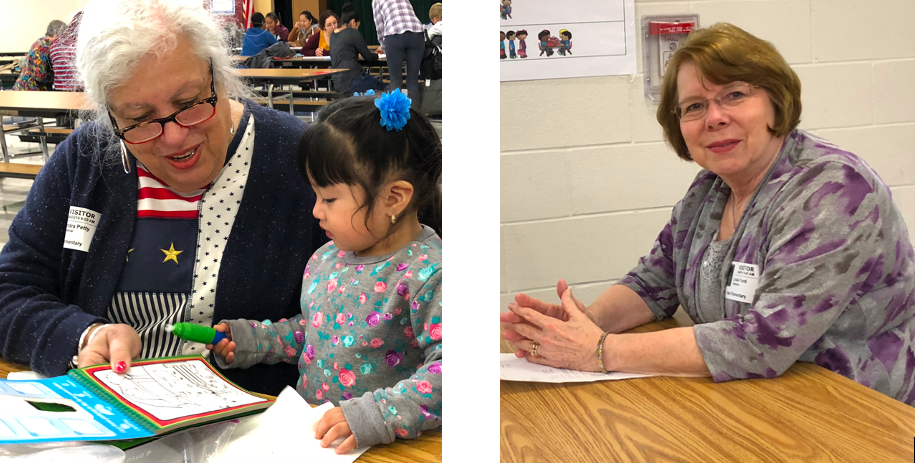

With pandemic restrictions imposed on who could access public school campuses, “English for Parents” was suspended in March 2020. However, many of the parents and volunteers involved in that program subsequently joined BIIN’s online “Allies in Action” or “Conversational English” classes, or continue to support and engage with BIIN in other ways. For example, Fran Bracher and Rhonda Oakley, long-time volunteers with “English for Parents” and members of St. Andrew’s, brought their skills and welcoming spirit to “Allies in Action,” the online program designed to help parents practice English and digital literacy skills during the months of remote learning required by the pandemic.
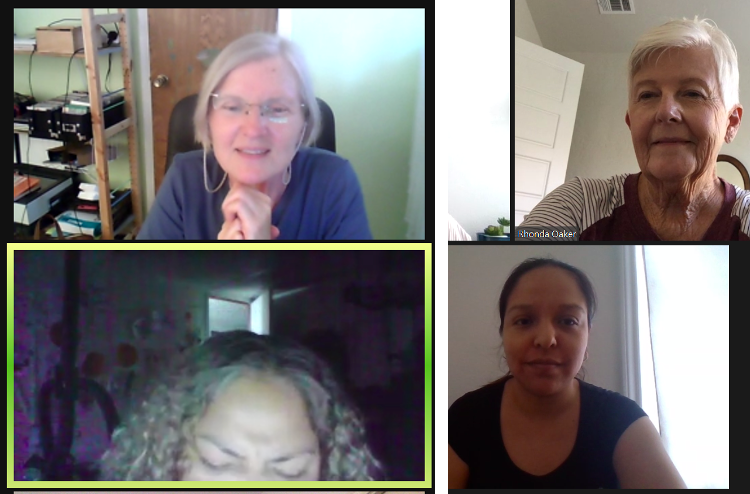
Linda Ford (also a member of St. Andrew’s) had been introduced to “English for Parents” by Mary Lenn Dixon, and served as program leader for two years. Linda, who is currently studying to become a deacon for the Episcopal Church, chose to serve BIIN again for her non-parochial field service in the spring of 2021, this time working with other BIIN programs and helping staff with some special projects. On Monday and Wednesday evenings, she engaged with a cohort of Level 3 students in the “Conversational English” program meeting via Zoom.
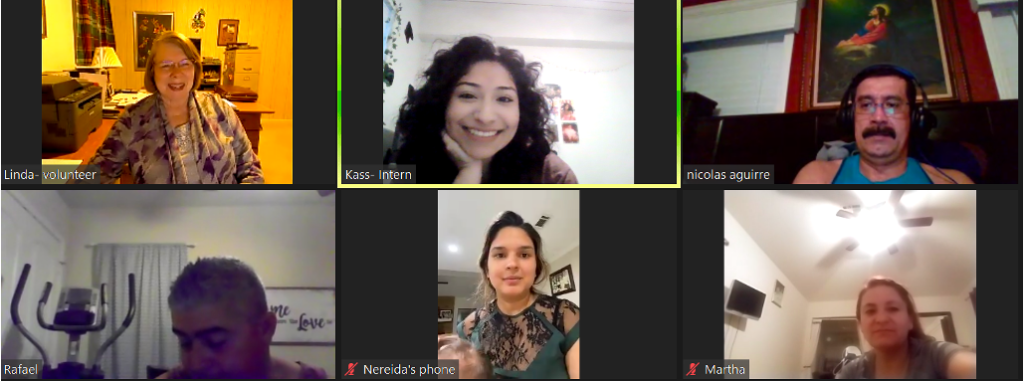
Asked about the experience, Linda remarked, “I couldn’t believe what these students could do! They worked so hard and so cheerfully after a long day working and caring for their families.” Linda also helped with BIIN’s citizenship classes on Saturday mornings, and found the volunteers who serve as lead teachers in both programs to be “very supportive and encouraging.” Along with other volunteers, Linda is rooting for the citizenship class participants to pass the naturalization test and interview in San Antonio, so that they can realize their dream of becoming US citizens.
As with many other faith-based communities, St. Andrew’s practices of gathering for worship and other activities were disrupted by the pandemic. But as restrictions start to ease up and in-person gatherings resume, Rector Daryl Hay hopes that St. Andrew’s can build on the strong relationship it has long had with BIIN. Specifically, he would like to see the parish do internal work so that it can help “in a more robust way” with the good work that BIIN is doing in the community.
We at BIIN are grateful for the many ways that the parish and people of St. Andrew’s Episcopal Church have participated in and supported BIIN’s mission over the years, and we look forward to seeing what more we can do together to make our community one where all are truly welcome and where the dignity and well-being of all people are ensured.
